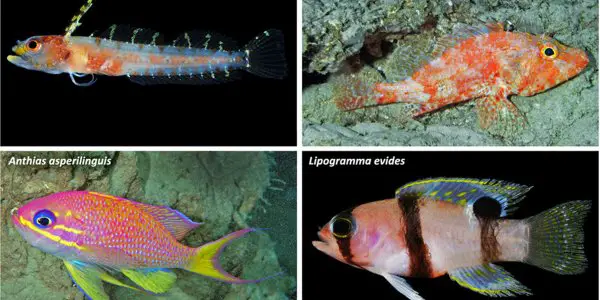Scientists Discover Thousands Of Fish Never Seen Before
Tags: opinion

Whilst innovative technology has meant that we now know more about our oceans than ever before, there’s still a lot entirely unknown to us, due to the vastness of the big blue.
One of the numerous places that has remained unstudied by marine scientists was the ecosystem of the southern Caribbean Sea – until now. A team of Smithsonian researchers have been able to provide the first details of the unique ocean in this area, including completely new species.
The area is said to be so unique that a new ocean zone was defined around it. The team documented a total of 4,436 individual fish during 80 manned dives around Curaçao Island – this included 30 new species and six new genera of rariphotic specialists, according to the huge survey that was published in Scientific Reports. Whilst this data continues to be analysed, it is further thought that more newly discovered species will appear, whilst it currently stands that around one-fifth of the fish that were seen during the study had never been seen before.
Carole Baldwin, lead author and director of the Smithsonian’s Deep Reef Observation Project (DROP), said in a statement, “Reef ecosystems just below the mesophotic are globally underexplored, and the conventional view based on the few studies that mention them was that mesophotic ecosystems transition directly into those of the deep sea. Our study reveals a previously unrecognized zone comprising reef vs. deep-sea fishes that links mesophotic and deep-sea ecosystems.”
Through studying the algae, it was also concluded that these species can survive in a range of water depths, as shallow and deep-water specialist species were found. In addition to this, the genetic and physical analysis of the fish found that some of the species had recently evolved from shallow-water relatives, although the cause for this is still to be discovered.
Following this new study, the hope is that researchers will discover the reason behind coral deaths and climate change-driven ocean temperature rises which affect sea life, and therefore uncover how to prevent this in the future.
I’m Jess Murray, wildlife conservationist, photographer, and writer. Follow my Facebook page and Instagram account to be part of the journey. I like to document the natural world and create awareness through my writing so that your future can be sustainable and positive.
Source: iflscience.com
Leave Comment: